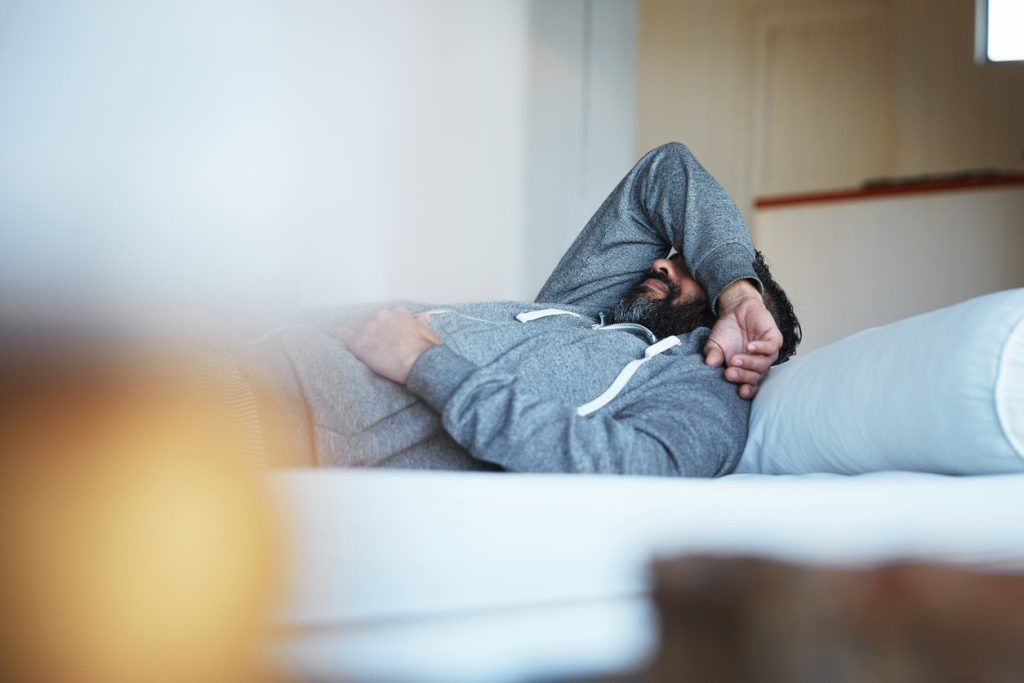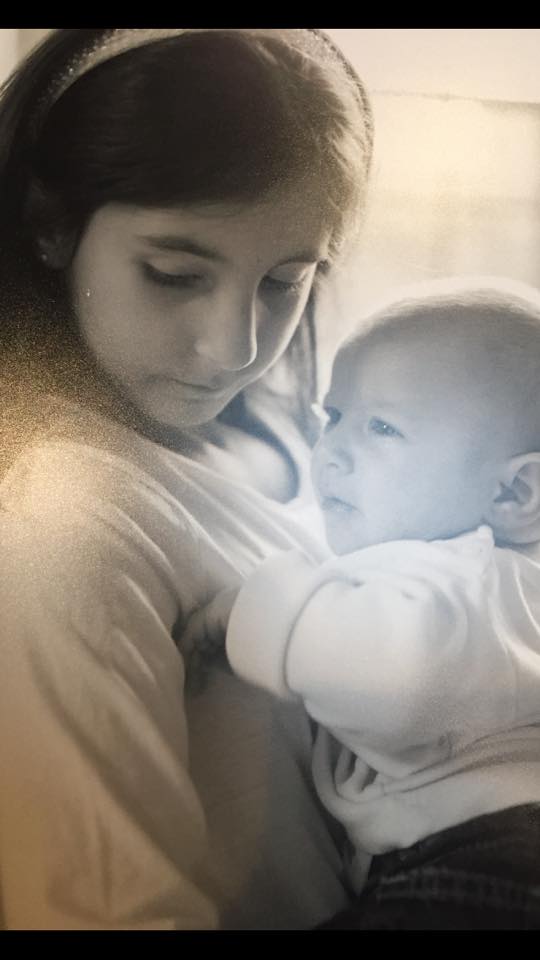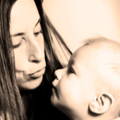Did You Know New Dads Also Suffer From Postpartum Depression?

It’s absolutely wonderful that so many women are openly speaking out about their postpartum depression. But I recently met a new father who made me realize that Dads can also suffer from depression after having a baby. He admitted that he was so depressed after his wife gave birth, that, sadly, he almost committed suicide. Thankfully, his family rallied behind him and got him help. But since this topic doesn’t seem to be discussed as openly or widely, maybe now it’s time for people to start speaking out about the other side of the perspective, too.
There’s a name for this clinical condition for men, called ‘Paternal Postpartum Depression’ (PPPD.) In fact, studies have shown that one in four men now suffer from PPPD. In this article on men suffering from PPD, one dad admits that what should have been the happiest time of his life turned into ‘a complete nightmare.’
This new father confessed, ‘I knew that stupid stuff like watching TV, going on the computer, or taking a nap whenever I wanted was over—that was expected. But I was worried that I’d never get back to my hobbies, my friends, my extended family. I felt trapped and started spending longer hours at work because I didn’t want to come home and be guilty about the way I was feeling. I was a very involved dad, but I still felt like a zombie going through the motions. I would cry, sometimes uncontrollably. It was brutal, and I honestly didn’t think it would ever get better.”
Even George Clooney recently spoke about raising his newborn twins, admitting “They don’t cry… I cry more than they do. I cry four times a day right now, because I’m so tired,” he said. “Hey, remember back when you were single, before you didn’t have to worry about keeping people alive? Wasn’t that great?” I’m not a doctor, so who knows if Clooney may be suffering from The Baby Blues. But at least he admits that, because he’s so tired, he cries…a lot. That’s a start.
Dr. Will Courtenay founded the website, PostpartumMen, which he describes as ‘a place for men with concerns about depression, anxiety or other problems with mood after the birth of a child’. It promotes self-help, provides important information for fathers—including a self-assessment for postpartum depression—hosts an online forum for dads to talk to each other, and new information about men’s experiences postpartum, and—most importantly—helps fathers to beat the baby blues.
‘Being a parent is hard,’ he shares. ‘And being a new father of an infant is especially hard. It’s stressful. And conflicts with your partner that arise after a few sleepless nights can make things harder. But PPPD is different. It’s a clinical condition.’
Dr. Courtenay says that up to 1 in 4 dads suffer from PPPD, and it can occur anytime during the first year after having a baby.
Interestingly, although not all that surprising when you think about it, Dr. Courtenay also says that, ‘The best predictor of a man’s risk of depression is whether his wife is also depressed. Half of all men whose partners have postpartum depression are depressed themselves,” he says. Looking back, I wonder if either of my two children’s fathers suffered from PPPD, because I suffered from postpartum depression with both of my children. If they did, I certainly didn’t know about it. Why? Men are less likely to share their feelings of depression.

While women have gaggles of friends to talk to, and are way more open to discussing their postpartum depression and getting help from doctors, men are way less likely to discuss their feelings…with anyone. So, often new fathers feel even more isolated than women.
Interestingly, according to Dr. Courtenay, researchers are starting to see that men often experience and cope with postpartum depression in different ways than women. On his website, there are a litany of symptoms of ‘Men’s Depression,’ including, increased anger and conflict with others, increased use of alcohol or drugs, violent behaviour, isolation from family and friends, being easily stressed, physical symptoms including headaches, working constantly and even suicide.
Fourteen years ago, which really isn’t that long ago, it took a number of doctors to even broach the subject of postpartum depression with me. One doctor asked, as I bawled uncontrollably in his office, if ‘anything had changed in your life recently?’ I answered, ‘Yes, I had a baby!’ The doctor quickly moved on, as if having a baby had absolutely nothing to do with the fact I was extremely depressed and could barely get out of bed. Dr. Courtenay also says that many health care professionals don’t often recognize PPPD in new dads, at least the new fathers who manage to force themselves to get help. For those who can recognize that maybe Daddy is suffering from postpartum depression, it’s hard to even know what to do.
So what can we do? Well, I hope more men will start speaking out about this. Because it is so much more serious than almost new-fathers who gain baby weight along with their pregnant wife. You can lose the weight. But PPPD can take away lives.
Now it’s time for new fathers to speak up, so more new daddies can know they are not alone. Likewise, new mothers need to know that PPPD is as real for new dad as postpartum depression is for women.
















